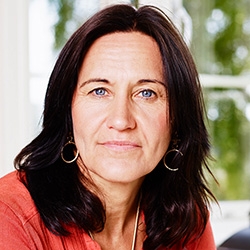

Search Results: choice
-
- Discover what triggers shame in you, and how to transform it
- Learn to navigate a shame attack and make good use of it
- Expand your capacity for recognizing when others are experiencing shame
- Connect with others who get trapped in shame avoidance patterns
- Allow your vulnerability to bloom by disentangling shame from fear
-
Learn to listen with presence and power and gain tools to transform conflict in any situation.
-
We’re in the throws of a particularly worrisome presidential election in the USA. Combined with world affairs and the global warming of our earth, we are seeing a level of despair higher than I ever remember experiencing.
As a result, the level of blaming others, judgments, dis-ease, and lack of trust that I experience or hear about every day is at an all-time high. I think there’s so much fear that we’ve begun lashing out at others, and rage is either visible or ever lurking.
-
- Discover what is yours to do in response to our growing global crises
- Weave nonviolence more deeply into how you live and lead
- Receive ongoing support within and beyond the course in how to be effective and alive while doing what’s yours to do
- Increase your capacity to face and mourn current reality as a source of greater choice and energy
- Be a part of transforming the legacy of scarcity, separation, and powerlessness into a livable future
-
Dear friends,
#UnlockYourAuthenticVoice
This has been on my mind lately. What does it mean to unlock my authentic voice? How do I talk about things that matter to me without creating emotional distance between myself and others? I’ve found this especially challenging after the US presidential election this month— half the voters are devastated by Donald Trump’s election, and the other half are elated. The extremes are vast. Sometimes imagining a coming-together feels hopeless.
-
Our brains often quickly categorizes things as good, bad, right, or wrong and then determines who’s to blame or praise. Maybe this supports the illusion of order and predictability, thus provides a false sense of safety and reassurance. But its less effective in truly meeting our needs. By practicing "Living in the Observation," we can focus on reality, avoid unhelpful rumination, and find peace and empowerment in everyday life.
-
Dear friends,
Happy April Fool’s Day, which, according to Wikipedia, “is an annual custom on April 1st consisting of practical jokes and hoaxes.” I always think of my Mom on April Fool’s Day. She was mostly a stern person who scorned practical jokes, but on April Fool’s Day, she would play hoaxes on my father. One year, she sewed his boxer shorts’ fly shut. Another year, she reorganized all the drawers in their bedroom. Both of these really made me laugh because it was so out of character coming from her! This April 1st, I do not want to play a trick on anyone, but I do want...
-
In times of conflict, it’s easy to lose touch with ourselves and our needs. In this heartfelt session, Jesse Wiens Chu shares three practical centering practices—rooted in the principles of Nonviolent Communication (NVC)—to help you find your way back to self-connection, empathy, and choice.
-
When working to repair a relationship after conflict, and after reaching mutual care and understanding, you’re more likely to prevent future disconnection in similar situations by coming to clear, specific, and actionable agreements. Ensure requests for agreements come from a negotiable needs-based dialogue. Clarify specifics and plan to revisit agreements to assess their effectiveness.
-
- Learn how every decision we make perpetuates the status quo or brings us closer to the vision of a world that works for all
- Find out about our big brain capacity to integrate needs, impacts, and resources to make decisions that work for everyone
- Understand why power differences interfere with collaborative decisions and what can be done about it
- Discover tools that support collaboration in larger groups and organizations— even across power differences!
-
What drew you to Nonviolent Communication? In this touching reflection, a longtime NVC trainer, Mary Mackenzie, shares the moment that first lit her up with hope.
-
Susan Skye unpacks the need for respect, offering clarity for requests and personal experience.
-
Our "felt-sense" can provide crucial information about our experience and our lives. It can also help us integrate and retain information. This can also bring greater access to internal resources, choice, open heartedness, collaboration and creative solutions. From there, profound insight and transformation can follow. Here's how we can harness that...
-
CNVC Certified Trainer Lore Baur shares how, as a teacher, the classroom is a laboratory for learning NVC and incorporating the NVC consciousness into the classroom. Topics discussed include empathy, permission to educate, protective use of force, corrective action, choice & options and re-do.
-
Attraction to others is neither good nor bad. Although it's pleasurable it doesn’t necessarily help with wise discernment. When it arises, it's up to you to engage in wise discernment about how you manage it. This guide provides practices and points of focus to engage your own attraction in a way that holds more choice about what will meet needs for yourself and others, and what role attraction plays.
-
We can cultivate spiritual clarity through bringing attention to our intentions, mourning, gratitude, and the dynamic flow of feelings and needs. This can bring more autonomy, choice and liberate the energy of connection and contribution. We can also awaken our hearts to see the reality that our well-being is mutually interdependent. Read on for more.
-
Welcome to the final video in our 3 part Embodied NVC Life Hack series. So far we've learnt about rewiring our brain from a flight, fright or freeze reaction to the choice of self-empathy, allowing us to centre and check-in with ourselves. In part two, Empathy Skills, we went beyond self-empathy to look at ways we can empathise with the other person. In this final instalment, we create a bridge from empathising to expressing.
-
Kristin Masters explores how to approach goal-setting and self-reflection with compassion and mindfulness grounded in NVC principles. She encourages you to examine how conscious choice plays a role in how we treat ourselves and others.
-
Because we affect one another it can be hard to know where to take responsibility and where to leave it with the other person. This means we need self empathy, and presence for another's struggles without compulsion to "make them happy" or bring them healthy change. You can then attend to the needs and to your choice about if and how you want to contribute with compassion. Respect them as autonomously in charge of their unique process of change. With this, you honor your life and theirs. And where, what, and how you will invest your precious life energy.
-
When you hear yourself saying that you are being abandoned, turn toward your experience with compassion and curiosity. Check in with your interpretations, feelings, and needs. Reach out for support. This can help dissolve feelings of reactivity and allow perspective. You are then able to make requests of yourself about what you’d like to do differently in the future to honor for your needs when making a choice.
Quick Links

Stay in Touch!
We value your privacy, won't share your email address and you can easily unsubscribe any time.
















